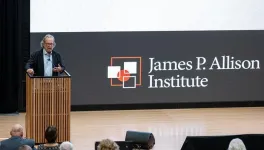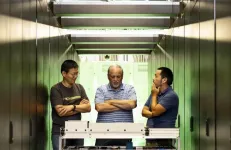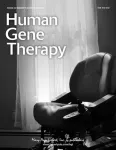(Press-News.org) In front of a mud brick house, a woman started a fire.
Using wood harvested from a grove of nearby acacia and river bushwillow trees, she arranged kindling and then layered over larger pieces culled from the fast-growing trees. When the fire was hot enough, she set a pot over the center to boil water for beans, a vital food source that will take hours to cook.
This daily ritual — enacted by many of the 1.5 million refugees displaced in Uganda — raises critical questions about how countries, communities, and humanitarian actors can efficiently and effectively provide safety and food for refugees fleeing conflict while also maintaining and utilizing the environments and ecosystems where they reside.
To tackle these questions, Sarah Juster of the College of Natural Resources and Environment has been researching how agroforestry – the integration of trees and shrubs into crop and animal farming systems to enhance environmental and economic outputs – can be successfully utilized to improve the day-to-day experiences of refugees living in the Imvepi Refugee Settlement in northern Uganda.
A recent Fulbright grant will allow Juster, a doctoral student in the Department of Forest Resources and Environmental Conservation, to expand her research exploring how different tree-based interventions might improve the lives of refugees in Africa.
Life in a refugee settlement
Living conditions for refugees in Uganda are different from the densely populated camps that western readers might imagine.
“The refugee situation in Uganda is unique because they’ve established open settlements,” said Juster, an Interfaces of Global Change Fellow in the Global Change Center at Virginia Tech. “People in the U.S. are surprised to see these because there is a perception that refugees typically live in tightly packed, urban camps. In this case, refugees are given small plots of land to build homes and grow food while they are in the settlement.”
At the Imvepi settlement, refugees have built houses out of mud bricks and straw on land granted to them. They use surrounding land to grow crops to supplement food rations.
“The two primary challenges that refugees face are food insecurity and low access to firewood, which is needed as cooking fuel,” said Juster. “Dry foods provided by the World Food Programme such as beans can take a long time to cook, but firewood is not always available. Some households end up spending hours per day walking to find safe access to wood.”
Juster’s exploration into improving living conditions like these through the use of agroforestry practices started with a three-month study that she conducted for the Center for International Forestry Research and World Agroforestry (CIFOR-ICRAF), an institute headquartered in Kenya that specializes in sustainable management of forests and reserves throughout Africa.
“I conducted an evaluative study on their programming with refugees and hosts in northern Uganda,” said Juster, a recipient of the Robert S. Burress Fellowship. “I sat down with about 80 households – both refugees from South Sudan and also some of the Ugandan households in villages that host these settlements – and I tried to assess the different benefits and challenges of agroforestry practices at the household level.”
To further her research of agroforestry strategies, processes, and outcomes, Juster came to Virginia Tech to collaborate with Professor and Forest Management Extension Specialist John Munsell, a specialist in using agroforestry techniques to tackle natural resources challenges.
“Sarah’s research focuses on how and why agroforestry improves human welfare, environmental health, and regional security in regions of mass displacement,” said Munsell, who teaches in the Department of Forest Resources and Environmental Conservation. “Her work combines site-based planting and canopy assessment and planning parameters with humanist research focused on priority setting for households, as well as how refugee-focused organizations can better achieve their goals.”
While conducting her research, Juster saw that CIFOR-ICRAF wasn’t the only organization implementing forestry and agricultural strategies in the Imvepi settlement, which has a population of approximately 65,000 refugees.
“I realized very quickly that there was a spectrum of approaches to increasing tree cover implemented by different organizations, with each developing their own unique programming,” said Juster, who completed an independent study course with Virginia Tech’s Center for Refugee, Migrant, and Displacement Studies, located in the College of Liberal Arts and Human Sciences. “So far, there hasn’t been a holistic comparison of these approaches in terms of their unique benefits and challenges.”
To explore that research question, Juster and Munsell designed a two-pronged approach, conducting interviews with the staff at non-governmental organizations to understand the ambitions and efficacies of various tree-based approaches while also developing a household-level study to understand how the various approaches were being experienced by refugees and hosts.
In addition to agroforestry, Juster analyzed interventions that focused on the conservation of indigenous tree species, the construction of fuel-efficient cookstoves, and the establishment of large-scale woodlots.
“My goal isn’t to say that one model is better than another,” Juster said. “Instead, I hope to develop a decision-making tool that will enable organizations to consider and select strategies and interventions that will allow them to meet their unique programming goals and better engage with communities.”
Talking through pictures: a bridge across the language barrier
Conducting research in refugee settings can be challenging given significant barriers in language and culture between refugees and outside researchers.
“The process of talking through interpreters can sometimes become exhausting for people on both sides, and research fatigue in refugee camps is definitely a thing,” said Juster, who received funding from Virginia Tech’s Center for Peace Studies and Violence Prevention, also in the College of Liberal Arts and Human Sciences, to conduct data collection. “This is especially true when surveys are long and repetitive.”
To alleviate that fatigue, Juster and Munsell are developing a photo-based data collection tool that utilizes a mixed-methods approach to social science research by asking participants to rank photographs as a means toward understanding their subjective experiences.
“In our case, the topic is what are the benefits of engaging with different tree-based interventions,” said Juster. “We selected photos demonstrating a range of potential tree benefits, including fruits, medicine, animal fodder, firewood, and also things like social cohesion and intergroup harmony between refugees and nearby host communities.”
Participants were asked to arrange the photos onto a rank-ordered grid based on which photographs were most meaningful to them. Juster tallied their responses and set them against demographic and program-involvement information to gain a quantitative understanding of the impacts of interventions for participants.
Juster piloted this approach through preliminary data collection procedures in May and June.
“I found that the refugees and host families that participated in the photo sorting really enjoyed the process, and the results will help us get a clearer understanding of what impact interventions are having,” Juster said. “Additionally, we’re going to be able to contribute a new methodological approach to studying issues in refugee contexts that can be used to measure a range of questions.”
In addition to exploring new methods for collecting data about refugee experiences, Juster is researching the dynamics of where refugees in the settlement go when they forage for firewood.
“Using participatory mapping, I will take transect walks with the refugees when they go to collect firewood, collecting geospatial data on distance and location as well as qualitative insights on why they go where they go,” she said. “I’m interested in the decision-making processes that refugees make in terms of which areas they prefer and which places they avoid. This information can inform us on where we should be focusing future planting efforts.”
Juster will expand on this project with the help of the Fulbright grant, which will fund nine additional months of research in Imvepi starting in the spring of 2024.
“Improving the efficiency and sustainability of land use where displaced people reside is crucial around the world,” said Munsell. “Increased population and limited land access places great demand on natural resources, which can result in significant degradation and sometimes human conflict. I’m not at all surprised that the Fulbright Program decided to support Sarah’s effort to address such an important issue through the lens of tree and forest cover preference and design.”
Juster admits that the experience of walking with refugees in their day-to-day lives is one of the aspects of her research that she most enjoys.
“It’s my favorite part of my research,” Juster said. “I took a few walks with refugees this summer and it was fascinating to see the forests through their eyes. In particular, there was a whole ethnobotanical side of their experience, where they are collecting different plants for medicine or food and bringing them back to their homes.”
Juster – a recipient of a CNRE graduate travel grant this year – will be presenting her research to the 5th International Congress on Planted Forests in Nairobi this November. Her Fulbright grant will fund her research in Uganda from March 2024 through November.
For advice and resources on applying for a Fulbright grant, contact Virginia Tech’s Fulbright liaison, Nicole Sanderlin, director of global engagement in the College of Engineering. The Provost’s Office assists department, college, or division leadership in facilitating leave for Fulbright fellowships. The Global Education Office, part of Outreach and International Affairs, provides support and resources for incoming Fulbright scholars and the departments that host them.
END
Hope takes root in Uganda
A Fulbright grant will continue Sarah Juster’s research on how agroforestry and tree-based interventions can help refugees in Africa
2023-11-14
ELSE PRESS RELEASES FROM THIS DATE:
TOS past presidents comment on select study results
2023-11-14
ROCKVILLE, Md.— New findings show that the medication known as Wegovy® (semaglutide) can reduce existing heart disease in patients with obesity by 20%, according to a study co-authored by past presidents of The Obesity Society (TOS) and published in The New England Journal of Medicine.
"The SELECT trial is the first study showing that prescription of an anti-obesity medication in people with overweight or obesity and existing cardiovascular disease can be life-saving,” said co-author and TOS Past President Robert F. Kushner, MD, FTOS, professor, Departments ...
HSS presents new reproductive health research at the ACR Convergence 2023
2023-11-14
At this year’s American College of Rheumatology (ACR) annual meeting, Hospital for Special Surgery (HSS) presented a number of important studies focused on reproductive health for patients with systemic lupus erythematosus, rheumatoid arthritis, and other rheumatic diseases, including issues related to fertility, sexual function, use of contraception and HPV vaccination.
What follows are some highlights from the meeting:
Association of Menstrual Cycles and Disease Flare Activity in Women with Systemic Lupus Erythematosus and Rheumatoid Arthritis
In this study, researchers surveyed female rheumatology ...
Social factors, rather than biological ones, drive higher numbers of adverse drug events in women
2023-11-14
A new study out this week in the journal Social Science and Medicine proposes that social, gendered variables may better explain observed sex disparities in adverse drug events than sex-based biology.
Adverse drug events refer to harmful side effects resulting from the use of a drug. A 1.5-2 times higher rate of adverse drug events in women compared to men has long been observed, and addressing this disparity has been an enduring priority of women’s health advocates, medical researchers, and institutions such as the National Institutes of Health.
Advocates ...
Franck Marchis of SETI Institute honored as 2023 Fellow by California Academy of Sciences
2023-11-14
November 14, 2023, Mountain View, CA - Dr. Franck Marchis, a senior planetary astronomer at the SETI Institute, was appointed as a 2023 Fellow by the California Academy of Sciences (Cal Academy). Recognized for his exceptional contributions to the natural sciences, Marchis joins a distinguished group of scientists, including other notable SETI Institute Fellows of Cal Academy, such as Dr. Jill Tarter, Dr. Nathalie Cabrol, Dr. Seth Shostak, and Trustee Andrew Fraknoi.
“As an astronomer, I am constantly amazed by the vastness and complexity of the universe,” ...
Allison Institute hosts inaugural scientific symposium
2023-11-14
HOUSTON ― The James P. Allison Institute at The University of Texas MD Anderson Cancer Center hosted its inaugural scientific symposium on Nov. 10 at the TMC3 Collaborative Building in the Texas Medical Center’s Helix Park. The event brought together more than 400 leading scientists, including three Nobel laureates, from multiple disciplines to share groundbreaking immunotherapy and immunobiology research.
“Our inaugural symposium is an important milestone representing significant progress for the Allison Institute since we launched last year, and we’re energized by the exceptional science shared by our members and colleagues,” ...
Super speeds for super AI: Frontier sets new pace for artificial intelligence
2023-11-14
The team that built Frontier set out to break the exascale barrier, but the supercomputer’s record-breaking didn’t stop there.
“The exascale number marks a major milestone itself, but it also marks the beginning of a new chapter in high-speed computing,” said Feiyi Wang, an Oak Ridge National Laboratory computer scientist who leads research into artificial intelligence and analytics. “We don’t have to wait for the next generation of computing anymore. We can have it here today.”
Frontier claimed the title of fastest computer in the world by running at ...
How teachers would handle student violence against educators
2023-11-14
COLUMBUS, Ohio – For the first time, teachers in a nationwide study have told researchers what strategies they think work best to deal with student violence against educators.
Teachers rated suspending or expelling students as the least effective way of addressing violence, despite the popularity of “zero tolerance” policies in many school districts.
Instead, teachers rated prevention policies, such as counseling for troubled students and improving school climate, as the best strategy for dealing with violence.
“Teachers ...
New CPU vulnerability makes virtual machine environments vulnerable
2023-11-14
In the area of cloud computing, i.e. on-demand access to IT resources via the internet, so-called trusted execution environments (TEEs) play a major role. They are designed to ensure that the data on the virtual work environments (virtual machines) is secure and cannot be manipulated or stolen. Researchers at the CISPA Helmholtz Centre for Information Security and Graz University of Technology (TU Graz) have now discovered a security vulnerability in AMD processors that allows attackers to penetrate virtual work environments based on the trusted computing technologies AMD SEV-ES and AMD SEV-SNP. This is achieved by resetting data changes in the buffer memory (cache), which gives ...
Peer educators play key role in new recipe development and testing
2023-11-14
Philadelphia, November 14, 2023 – Cooking and recipe demonstrations encourage healthy eating and adoption of unfamiliar foods by class participants. The research brief shared in the Journal of Nutrition Education and Behavior, published by Elsevier, demonstrates that valuable input by peer educators can be obtained through a hybrid home-use testing method.
The process of recipe development involves sensory evaluation about the appearance, aroma, taste, texture, and flavor of the food. Although a controlled laboratory setting is the gold standard for evaluation because of consistent preparation and presentation of food, bringing peer educators to a ...
Advances and challenges in gene therapy for rare diseases
2023-11-14
New Rochelle, NY, November 13, 2023—A new review article in the peer-reviewed journal Human Gene Therapy summarizes the significant milestones in the development of gene therapy medicinal products that have facilitated the treatment of a significant number of rare diseases. The article also describes the challenges in the progress of gene therapy for rare diseases. Click here to read the article now.
Juan Bueren, from Centro de Investigaciones Energéticas Medioambientalies y Tecnológicas (CIEMAT), ...
LAST 30 PRESS RELEASES:
Children with poor oral health more often develop cardiovascular disease as adults
GLP-1 drugs associated with reduced need for emergency care for migraine
New knowledge on heritability paves the way for better treatment of people with chronic inflammatory bowel disease
Under the Lens: Microbiologists Nicola Holden and Gil Domingue weigh in on the raw milk debate
Science reveals why you can’t resist a snack – even when you’re full
Kidney cancer study finds belzutifan plus pembrolizumab post-surgery helps patients at high risk for relapse stay cancer-free longer
Alkali cation effects in electrochemical carbon dioxide reduction
Test platforms for charging wireless cars now fit on a bench
$3 million NIH grant funds national study of Medicare Advantage’s benefit expansion into social supports
Amplified Sciences achieves CAP accreditation for cutting-edge diagnostic lab
Fred Hutch announces 12 recipients of the annual Harold M. Weintraub Graduate Student Award
Native forest litter helps rebuild soil life in post-mining landscapes
Mountain soils in arid regions may emit more greenhouse gas as climate shifts, new study finds
Pairing biochar with other soil amendments could unlock stronger gains in soil health
Why do we get a skip in our step when we’re happy? Thank dopamine
UC Irvine scientists uncover cellular mechanism behind muscle repair
Platform to map living brain noninvasively takes next big step
Stress-testing the Cascadia Subduction Zone reveals variability that could impact how earthquakes spread
We may be underestimating the true carbon cost of northern wildfires
Blood test predicts which bladder cancer patients may safely skip surgery
Kennesaw State's Vijay Anand honored as National Academy of Inventors Senior Member
Recovery from whaling reveals the role of age in Humpback reproduction
Can the canny tick help prevent disease like MS and cancer?
Newcomer children show lower rates of emergency department use for non‑urgent conditions, study finds
Cognitive and neuropsychiatric function in former American football players
From trash to climate tech: rubber gloves find new life as carbon capturers materials
A step towards needed treatments for hantaviruses in new molecular map
Boys are more motivated, while girls are more compassionate?
Study identifies opposing roles for IL6 and IL6R in long-term mortality
AI accurately spots medical disorder from privacy-conscious hand images
[Press-News.org] Hope takes root in UgandaA Fulbright grant will continue Sarah Juster’s research on how agroforestry and tree-based interventions can help refugees in Africa




